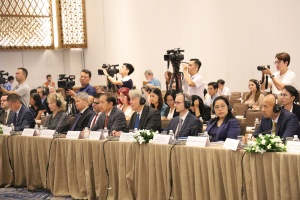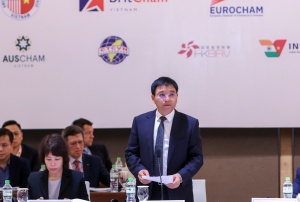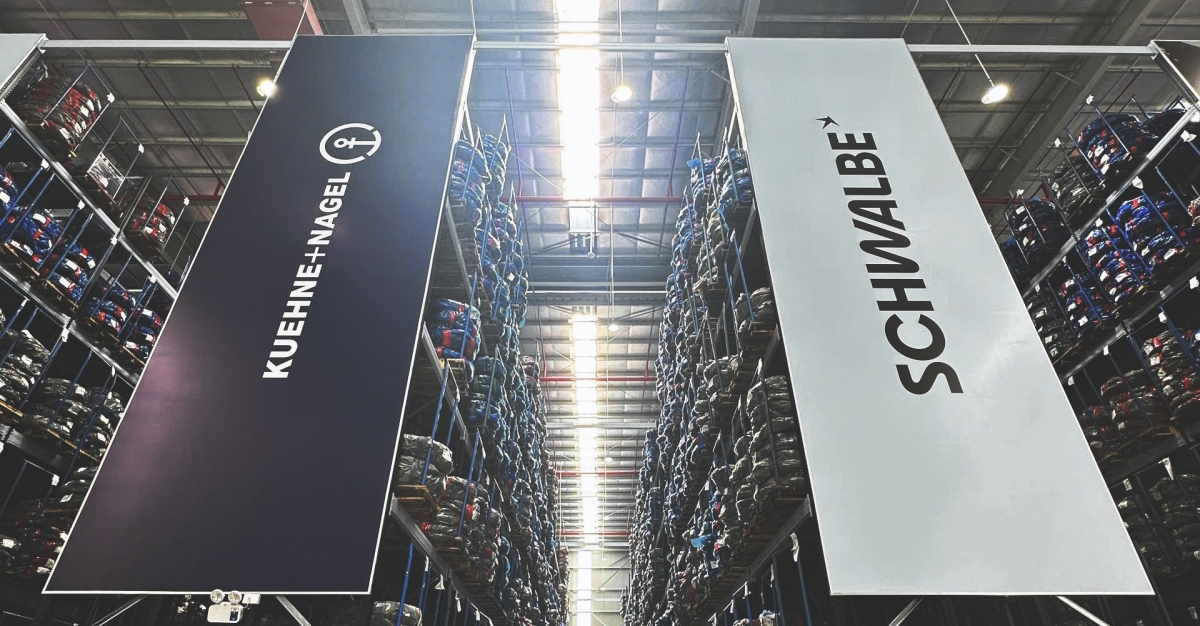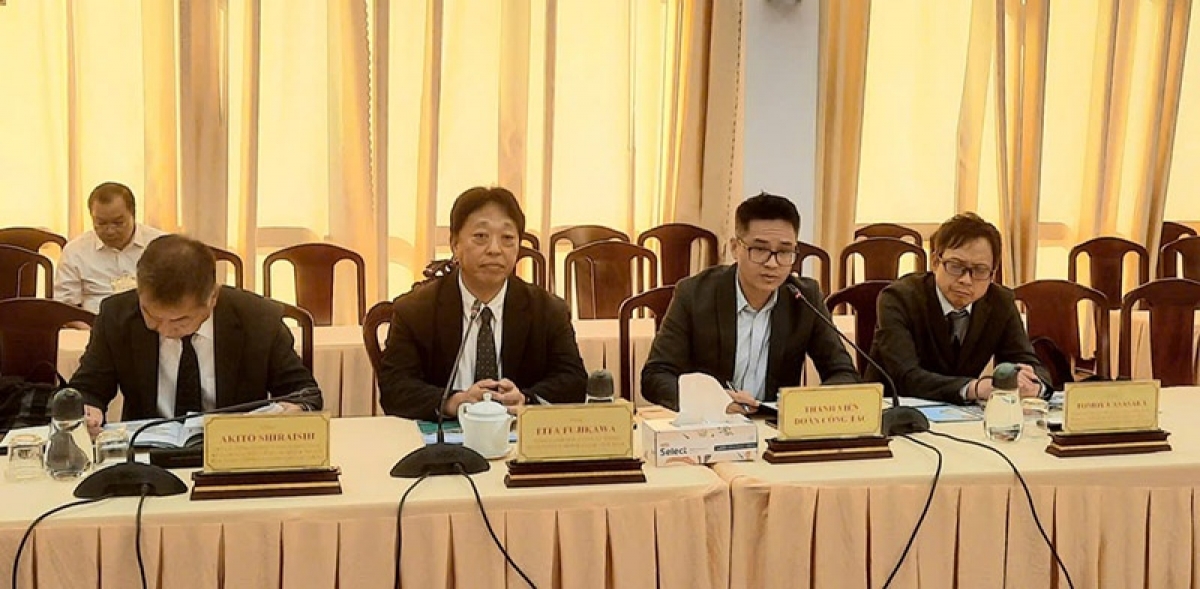INTERNATIONAL INVESTMENT
AND PORTAL
 Thomas Jacobs, acting regional director for East Asia and the Pacific at the IFC
Thomas Jacobs, acting regional director for East Asia and the Pacific at the IFC
In his opening remarks at the 2025 Vietnam Business Forum (VBF) on November 10, Thomas Jacobs, acting regional director for East Asia and the Pacific at the IFC, said the international business community has a very positive view of Vietnam's growth performance in recent years and its 2025 growth targets, as well as its ambitions for double-digit growth in the coming years.
“This is a great opportunity for investors to explore and expand their business and investment operations in Vietnam,” he said.
The IFC representative emphasised that sustainable growth is not an easy path, it requires significant investment in people, the environment, infrastructure, and policy. In this new era, Vietnam must continue its transformation and strengthen public-private cooperation. The VBF serves as an effective policy dialogue platform for the business community to collaborate with the government.
The ultimate goal remains national economic development, which requires the joint participation of the government, businesses, and international partners. Jacobs said, “Vietnam is facing many opportunities, but to take full advantage of them, investment attraction, particularly from the private sector, is key. This calls for transparent, stable policies and a more favourable business environment to encourage enterprises to expand their operations confidently.”
International cooperation also plays a crucial role. Vietnam needs to strengthen links with strategic partners to access technology, resources, and management experience. Sectors such as trade, technology, tourism, and investment all hold great potential for expansion, helping enhance Vietnam's competitiveness and position in the global arena, he said.
While the government plays a central role in policy design and implementation, it is the private sector, including domestic enterprises and foreign-invested firms, that drives growth. In addition, associations and organisations should actively participate in the policy feedback process to help improve the business environment in a more transparent and efficient manner.
"Therefore, economic development, innovation, and global integration must advance simultaneously. With close and proactive coordination between the government, businesses, and relevant organisations, Vietnam will be well-positioned to accelerate growth, attract more resources, and expand its international influence," Jacobs said.
 Mariam Sherman, WB country director for Vietnam, Cambodia, and Laos
Mariam Sherman, WB country director for Vietnam, Cambodia, and Laos
Mariam Sherman, WB country director for Vietnam, Cambodia, and Laos, said that the Vietnamese market is showing many positive signs, especially following FTSE's recent announcement to upgrade Vietnam to “emerging market” status. This is not merely a technical change, it opens the door for long-term foreign capital to flow into sustainable and high-impact projects in Vietnam. Such progress is the result of consistent reform efforts.
“Over the years, the WB has been pleased to accompany and witness the ongoing reforms that are increasingly recognised by international businesses and investors. Vietnam's market is building stronger investor confidence, and the road ahead still offers ample room for growth,” she stated.
However, Sherman pointed out some questions to resolve. How to achieve fast, inclusive, and sustainable growth to reach the goal of becoming an industrialised nation by 2050. This is the time to build a more resilient, competitive, and greener economy.
In this process, the domestic private sector and foreign-invested enterprises will play a decisive role. Reforms under resolutions No.68-NQ/TW and No.66-NQ/TW, from simplifying licensing procedures to enhancing policy predictability, will help businesses grow, innovate, and integrate more deeply into global value chains. Vietnam must seize this opportunity to generate a new wave of productivity growth.
Human capital is the most critical element for private-sector development. Currently, only one of six domestic firms has links to global markets, while productivity in the FDI sector is about 70 per cent higher, and wages are nearly 50 per cent higher. This gap poses challenges but also offers vast opportunities for technology transfer.
As foreign-invested enterprises form stronger linkages with local suppliers, quality standards and know-how will diffuse more rapidly, helping Vietnam move from assembly to design and manufacturing. The prerequisite, however, is a skilled workforce. At present, only 5.6 per cent of production workers are highly skilled, and the average value added is just $6.7 per hour.
“Narrowing this gap requires overhauling training programmes, promoting STEM education, strengthening vocational training, and expanding public-private partnerships,” she suggested.
Infrastructure is another vital condition. To achieve high-income status, Vietnam must invest heavily in transportation, energy, and climate resilience. Energy demand alone is expected to rise about 9 per cent in 2025, requiring nearly double the current generation capacity along with a modernised power grid. The private sector will drive investment, while the public sector must provide a clear, stable, and transparent policy framework.
The key factor in attracting capital is investor confidence, from stable tax policies and financial viable projects to transparent risk-sharing mechanisms. When domestic and foreign businesses work together, Vietnam can mobilise large financial flows, foster innovation, and address infrastructure bottlenecks.
"Partners, including the WB, stand ready to support capital mobilisation and market development. With effective collaboration, Vietnam can turn today's challenges into a prosperous, green, and innovative future," Sherman said.
 Experts seek solutions to improve investment environment in Vietnam
Experts seek solutions to improve investment environment in Vietnam
Issues facing foreign companies were raised at apolicy dialogueco-organized by Ho Chi Minh City People's Committee and the Vietnam Business Forum Alliance in Ho Chi Minh City on September 18.
 Businesses partner with government for the green-digital transition
Businesses partner with government for the green-digital transition
The Vietnam Business Forum (VBF) 2025 on November 10 saw the public and private sectors converge to define the country's development trajectory amid the twin transition of green growth and digitalisation.



















